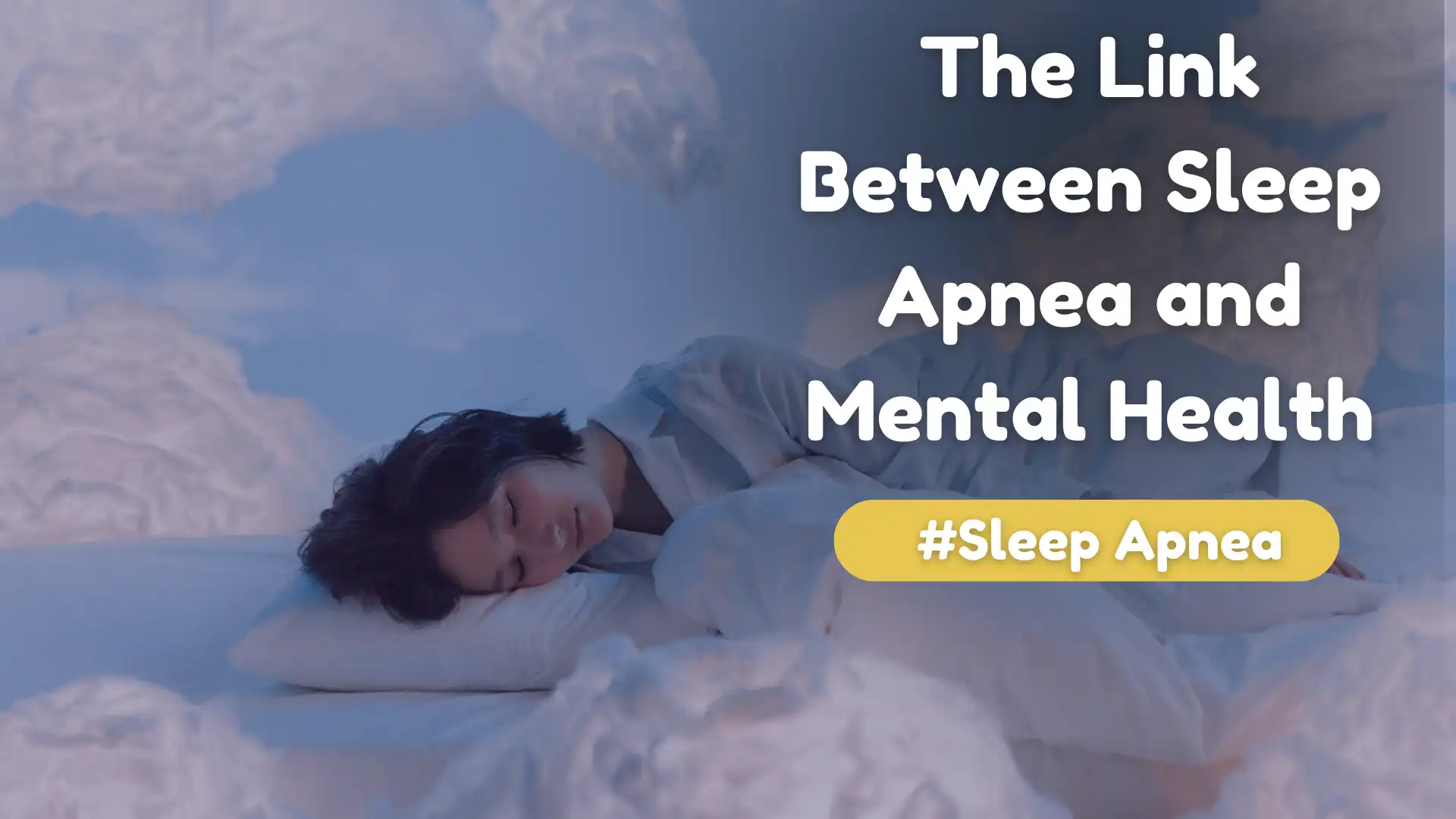Posted on Tuesday, April 29th, 2025 at 9:00 am
 Sleep is a vital part of a healthy lifestyle, but so many people across the world are struggling with the effects of sleep disorders they don’t even realize they have. One of these disorders is sleep apnea, which affects your breathing during sleep. Sleep apnea can lead to anxiety, depression, and overall cognitive decline. The relationship between sleep apnea and mental health is significant, and awareness of it can help you achieve overall well-being. Thankfully, a professional can diagnose and treat your sleep apnea to help you enhance your sleep quality and mental health.
Sleep is a vital part of a healthy lifestyle, but so many people across the world are struggling with the effects of sleep disorders they don’t even realize they have. One of these disorders is sleep apnea, which affects your breathing during sleep. Sleep apnea can lead to anxiety, depression, and overall cognitive decline. The relationship between sleep apnea and mental health is significant, and awareness of it can help you achieve overall well-being. Thankfully, a professional can diagnose and treat your sleep apnea to help you enhance your sleep quality and mental health.
Understanding Sleep Apnea
A good night’s rest is one of the most basic requirements for a human being to function properly. Sleep apnea is a condition that causes a person’s breathing to stop repeatedly throughout the night, preventing any actual rest at all. This condition leads to poor oxygen flow to the brain and body, which causes brain functions to cease optimal performance. There are two main types of sleep apnea:
- Obstructive sleep apnea occurs when airway blockages are consistently present during sleep.
- Central sleep apnea involves the brain’s failure to send signals to the muscles responsible for breathing.
In both types of sleep apnea, breathing can be stopped dozens or even hundreds of times per night. No matter which type of sleep apnea you might be struggling with, you’ll notice that your sleep isn’t as deep or restful as it should be. This can lead to a decline in your health and includes symptoms like continuous snoring, choking, or gasping through the night, as well as daytime fatigue and chronic morning headaches.
Common Mental Health Issues Linked to Sleep Apnea
Sleep apnea is more than just a nighttime breathing disorder. It has significant effects on mental health as well. Because it disrupts deep sleep, it will likely lead to cognitive and emotional problems that affect daily life. Some of the most common mental health issues linked to sleep apnea are:
- Depression – Ongoing sleep deprivation can cause persistent depression and disinterest in daily activities, even those previously enjoyed.
- Anxiety – Frequent interruptions in breathing can cause the body to have stress responses, which manifest as anxiety and agitation. Those who suffer from sleep apnea usually have excessive worry, panic attacks, and constant unease.
- Irritability and Mood Swings – Sleep deprivation makes it hard to control emotions, leading to excessive irritability, frustration, and mood swings.
- Cognitive Impairment – Sleep apnea affects memory, concentration, and judgment. People develop brain fog and forgetfulness, and it becomes difficult to handle daily tasks.
- Increased Risk of Dementia – Long-term sleep disturbances can result in cognitive decline and increase the risk of illnesses like Alzheimer’s and dementia.
Treating sleep apnea can help enhance mental health and sleep quality. If you are suffering from the symptoms of sleep apnea, don’t wait to get help.
Treatment Options for Sleep Apnea and Mental Health
 A great night’s sleep and a sharper mind are within your reach with effective treatment for sleep apnea. That treatment comes in several forms.
A great night’s sleep and a sharper mind are within your reach with effective treatment for sleep apnea. That treatment comes in several forms.
- Continuous Positive Airway Pressure (CPAP) Therapy – This standard treatment involves using a machine throughout the night to maintain open airways during sleep. After regular CPAP use, many people report feeling more energized and less anxious.
- Oral Appliance Therapy – This alternative to the CPAP machine repositions the jaw to allow continuous open airways.
- Lifestyle Modifications – Maintaining a healthy weight, avoiding alcohol and sedatives, and using positional therapy can help reduce the effects of sleep apnea, increase rest, and elevate emotions.
The relationship between sleep apnea and mental health is undeniable. The more prolonged sleep apnea goes without treatment, the more mental health is at risk of declining.
Seeking Professional Help
If you’re experiencing sleep apnea symptoms, such as snoring, fatigue, or mood disturbances, you should get checked out by a professional. At Silent Night Therapy, we care about your experience. That’s why we provide you with:
- Diagnostic Tools – We offer at-home sleep tests, which make it easy to get a proper diagnosis without an overnight sleep study.
- Customized Treatment Plans – We work with you to create personalized solutions for your unique needs, including providing CPAP alternatives and guidance on how to get your sleep pattern back on track.
At Silent Night Therapy, we aim to give our patients lasting relief from sleep fragmentation and mood disorders. Don’t put up with it any longer than you have to. Call us today at (631) 983-2463 or contact us online for a consultation and get started on the process of improving your sleep and your overall mental health.